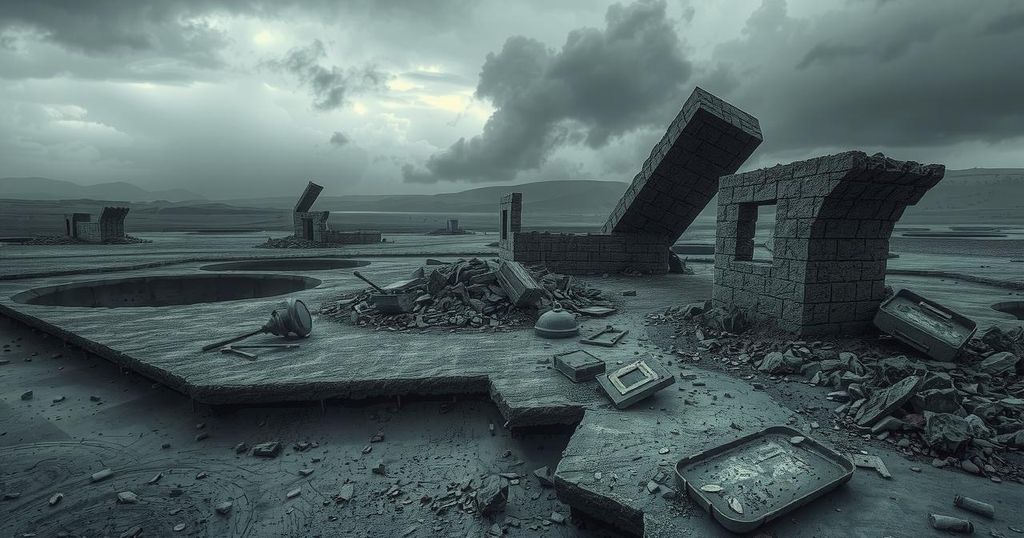Dissent Among Russian Elites Grows as Putin’s Strategies are Questioned

Vladimir Putin’s leadership is facing skepticism from Russian elites as dissent grows over his handling of the Ukraine conflict. The war has entered its third year, yielding minimal territorial gains at a substantial cost. Calls for a more aggressive military strategy are emerging amid concerns of fatigue and economic pressure.
Recent reports indicate growing apprehension among Russian elites regarding President Vladimir Putin’s management of the ongoing conflict in Ukraine. With the war entering its third year, there are signs of dissent within Moscow’s power circles, raising concerns that the prolonged conflict may inflict significant demographic harm on Russia.
Despite a substantial numerical and armament advantage, Putin’s forces have regained only approximately 1,609 square miles, primarily in Donbas, which represents merely 0.69 percent of Ukrainian territory. This limited territorial gain has incurred a staggering human toll, with Ukraine’s Ministry of Defence estimating Russian military casualties to exceed 430,000 last year, even with reinforcements from North Korean troops.
Within the Kremlin, there is a faction of hardliners who criticize military leadership, particularly for their failure to translate gains in the Kursk region into strategic advantages. They assert that Putin’s lackluster strategies hinder progress and advocate for escalating military actions in the conflict.
An insider from the Presidential Administration stated, “The president likes to fight, you can feel the excitement. Why stop halfway if you can finally put the squeeze on them?” However, discontent among security officials surfaced, with statements indicating that current efforts are insufficient, advocating for mobilization and a full-scale war footing.
There is reported fatigue among Kremlin insiders regarding the war, with one source noting, “The main emotion is disappointment.” They expressed a yearning for the conflict to conclude, emphasizing the prolonged wait has induced significant weariness among the ranks.
Economic pressures are also mounting as international sanctions become increasingly burdensome. A Kremlin source has suggested the need to conclude the war by 2025 could be “potentially critical” for President Putin amid escalating economic and social challenges that may arise from pursuing peace.
In summary, President Vladimir Putin faces increasing dissent from Russian elites regarding his approach to the Ukraine conflict, particularly as the war stretches into its third year. Limited territorial gains have come at a significant human cost, leading to calls for a reevaluation of military strategy. As fatigue sets in among Kremlin insiders and economic pressures mount, the urgency to conclude the conflict by 2025 emerges as critical for Putin’s leadership.
Original Source: www.irishstar.com








